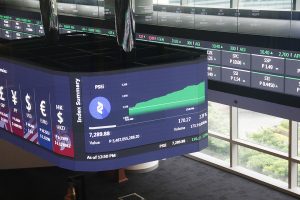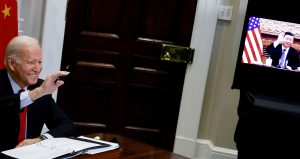Origins of the Filipino First mentality

(Part 3)
If the Filipino First policy did much harm to the Philippine economy in the last century, it will do even greater harm in this era of the Industrial Revolution (IR) 4.0. As our country is still struggling to combine efforts to complete the IR 1.0 (mechanical revolution), IR 2.0 (electrical revolution), and IR 3.0 (electronics revolution), it would be an impossible task to raise all the long-term capital needed to catch up with the rest of the world in joining the digital era required by IR 4.0 without the help of foreign equity. As Dr. Vaugh Montes points out in his paper (“Long Term Economic Transformation), whether we like it or not, we have to contend with breathtaking developments from the Fourth Industrial Revolution in technology, artificial intelligence, the Internet of Things, big data analytics, etc. which are dramatically transforming the provision of public services in mobile technology, media, healthcare, transportation, logistics, airports, education and others.
The restrictions on foreign ownership of utilities go back 87 years to 1935 when economic conditions and technology for public services were vastly different from today. To cite an obvious example close to the heart of Filipinos — who have the greatest number of smart phones per capita in the world — we can no longer consider telecommunications, media, and advertising as separate economic sectors. They have all merged into one technology-intensive industry. Even education has joined this super-industry if one considers the prevalence of online learning or blended learning, which will obviously not disappear with the pandemic. It does not make sense, therefore, to limit foreign ownership in media, advertising, and education as we liberalize foreign ownership in telecommunications. Sooner or later, we have to amend the Constitution itself which still limits foreign ownership in these three sectors.
The imperative of economic dependence prescribed by the Filipino First policy comes at the cost of restricting the economic freedom of the greater majority of Filipinos. The Overseas Filipino Workers (OFWs) are often praised as modern-day heroes for sending home billions of dollars every year. Even at the height of the pandemic, the OFWs were there to limit the economic sufferings of millions of Filipinos. Many of these Filipinos could be working at home if we had more long-term capital provided by FDIs. The OFW phenomenon has turned necessity into virtue. With their educational levels, working knowledge of English, adaptability, and aptitude for personal services, Filipino workers as OFWs have proven to be the country’s main tradeable resources. The lack of gainful job at home can be partly attributed to lack of foreign investments, curtailing the freedom of the OFWs to choose to work at home and be with their families every day instead of every two years.
The Filipino First mentality has also reinforced the elitist nature of Philippine society. Since the strategic industries in which foreign equity is limited — to only 40% or none at all — are very capital intensive, and since the Philippine capital market is one of the least developed in East Asia, only the rich Filipinos can actually own these very profitable industries. Without foreign competition, they also tend to be monopolistic or oligopolistic. You then have a deadly combination of monopoly and high concentration of wealth in the hands of the rich. What results is that “Filipino First” inevitably leads to “Rich Filipinos First” and damn the rest. Allowing foreign capital into these industries at least addresses the lack of competitiveness in these vital sectors.
Another objection to allowing majority control of strategic industries to be in the hands of foreign individuals or corporations is the possibility of abuse of their presence in the country. The answer to this objection is that abuse can come from any business whatever nationality has majority control. What we have to emulate is the way the Chinese Government has allowed the free entry of some of the largest foreign firms in such strategic sectors as telecommunications, media, education, and information technology. For example, before 2009, China allowed complete freedom of entry of such giant multinationals as Amazon, Google, Twitter, and Facebook that attracted billions of users. In July 2009, Chinese authorities blocked Facebook, along with Twitter and Google services, following riots in Xinjang, a special autonomous region in western China. The crackdown came when the Chinese Government accused these social media enterprises of interfering in local politics by giving voice to independence activists. The point here is not necessarily to condone what the Chinese Government has done in curtailing freedom of expression, but to illustrate the fact that a strong and effective Government can always demand appropriate behavior from businesses controlled by foreigners. We should let them in to benefit the economy by bringing in long-term capital, generating jobs, introducing advanced technology, and training our workers. The very liberal policy of allowing these giant US multimedia enterprises to enter freely led to the transfer of technology and creation of a huge domestic market that gave rise to the now powerful and profitable homegrown Chinese services such as Tiktok, We Chat, Sino Weibo, and Tencent QQ that have flourished under the watchful eye of government censorship.
If enterprises fully owned by foreign investors misbehave and act contrary to the common good of Filipinos (like spying, destroying morals through pornographic sites, condoning false news, destroying the physical environment, etc.) then our Government should be competent and strong enough to censure them and remove their license to operate. That is why it is good governance that is the key to long-term sustainable and inclusive government and not a Filipino First policy which our 75 years of efforts at development have shown to have brought so much economic harm to the nation.
We should give special thanks to the present Congress that has finally removed a serious obstacle to long-term sustainable and inclusive growth of the Philippine economy after many years of attempts of a few brave souls. Let me quote from the remarks of Senate Minority Leader Frank Drilon during the Senate’s ratification of the Bicameral Conference Committee report on the Public Service Act amendments bill: “I filed the first amendments to the Public Service Act, maybe 10 years ago, and this was principally from the very fact that we had a very restrictive foreign investment environment. The other countries kept on attracting foreign investment, because of their more liberal investment, foreign investment laws. Ours was very restrictive because of the Constitution, but we found a way of liberalizing our investment climate without amending the Constitution.
“I wish to thank the leadership of the Senate, led by Senate President Tito Sotto and the chair of our franchise committee, Senator Grace Poe, who really worked hard in order to be able to amend and pass this law. This is a game changer, if I may say so. And I’m glad to have been able to participate in this very important matter.”
Here again is another example of competent political leaders contributing to institution building that will benefit future generations, thanks to their enlightened views about the requirements of authentic development. May their tribe increase.
Bernardo M. Villegas has a Ph.D. in Economics from Harvard, is professor emeritus at the University of Asia and the Pacific, and a visiting professor at the IESE Business School in Barcelona, Spain. He was a member of the 1986 Constitutional Commission.




